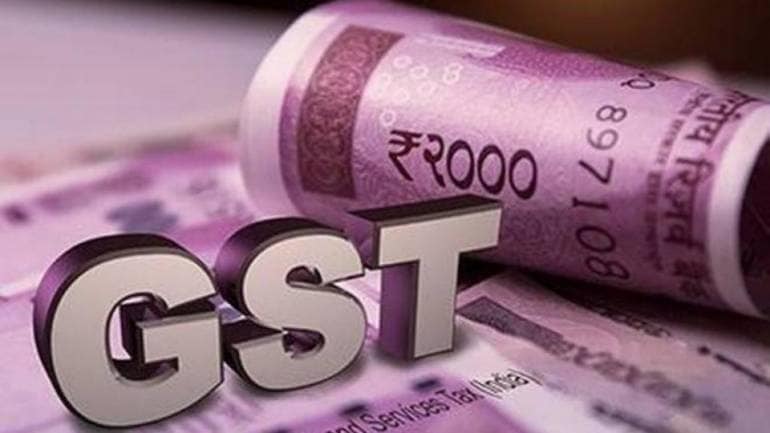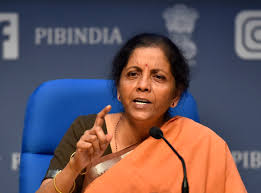1.Introduction
The expression “exempt supply” under GST law is of critical importance, as if a supply of goods or services or both is an exempt, no GST is payable thereon by the supplier under forward charge mechanism. Further in case any goods / service which are notified for payment under reverse charge mechanism, is exempt, the recipient also is not required to pay any tax thereon. Thus as a supplier as well as recipient need to identify the exempt supplies for discharging their GST liability, wherever required.
As per Section 22(1) of the CGST Act, 2017, registration is required to be obtained by a supplier in case his aggregate turnover exceeds the prescribed limit. The aggregate turnover inter-alia includes exempt supplies as per Section 2(6) of the CGST Act, 2017 and therefore quantification of exempt supply is of utmost importance for identifying whether registration is required or not. Though as per Section 23(1) of the CGST Act, 2017 any person engaged exclusively in exempt supplies of goods or services or both is not required to obtain GST registration.
Let’s start understand the meaning of exempt supply.
2.Definition and meaning of exempt supply
The term exempt supply has been defined in a very broad manner in Section 2(47) of the CGST Act,2017 as under:-
(47) “exempt supply” means supply of any goods or services or both which attracts nil rate of tax or which may be wholly exempt from tax under section 11, or under section 6 of the Integrated Goods and Services Tax Act, and includes non-taxable supply;
From above definition of exempt supply we can identify three ingredients of exempt supply, which are as under:
- NIL rated supplies.
- Supplies exempted from GST.
- Non-taxable supply
2.1 NIL rated supplies
NIL rated supplies means supplies which are subject to NIL rate of tax and are treated as part of exempt supply. It may be noted here that NIL rated supply and zero rated supply have different connotations. Zero rated supply is defined under Section 16 of the IGST Act, 2017 and covers exports and supplies to SEZ. It is not in any manner related to NIL rated supply.
Goods
As per Notification No. 1/2017-CT(R) dated 28.06.2017 which lays down the rate of tax on supply of goods, none of the goods are subject to NIL rate. Thus we can say that as on date, there are no NIL rated supply of goods.
Services
As per Sl. No 24 of the Notification No.11/2017-CT(R) dated 28.06.2017, the support services to agriculture, forestry, fishing, animal husbandry, are subjected to NIL rate of tax.
It is important to note here that as per Explanation provided in said Notification, support services to agriculture, forestry, fishing, animal husbandry mean –
(i) Services relating to cultivation of plants and rearing of all life forms of animals, except the rearing of horses, for food, fibre, fuel, raw material or other similar products or agricultural produce by way of—
(a) agricultural operations directly related to production of any agricultural produce including cultivation, harvesting, threshing, plant protection or testing;
(b) supply of farm labour;
(c) processes carried out at an agricultural farm including tending, pruning, cutting, harvesting, drying, cleaning, trimming, sun drying, fumigating, curing, sorting, grading, cooling or bulk packaging and such like operations which do not alter the essential characteristics of agricultural produce but make it only marketable for the primary market;
(d) renting or leasing
(e) loading, unloading, packing, storage or warehousing of agricultural produce;
(f) agricultural extension services;
(g) services by any Agricultural Produce Marketing Committee or Board or services provided by a commission agent for sale or purchase of agricultural produce.
(h) services by way of fumigation in a warehouse of agricultural produce.
(ii) Services by way of pre-conditioning, pre-cooling, ripening, waxing, retail packing, labelling of fruits and vegetables which do not change or alter the essential characteristics of the said fruits or vegetables.
(iii) Carrying out an intermediate production process as job work in relation to cultivation of plants and rearing of all life forms of animals, except the rearing of horses, for food, fibre, fuel, raw material or other similar products or agricultural produce
2.2 Supplies exempted under GST Law
The Central Government has power to grant exemption from tax by issue of notification under Section 11(1) of the CGST Act, 2017 / Section 6(1) of the IGST Act / Section 8(1) of the UTGST Act,2017. Similar powers have been conferred with State Government under Section 11(1) of respective SGST Acts. Such exemption can be granted from whole of the tax or part of tax and can be given absolutely or subject to some conditions.
Goods
As per the powers conferred under Section 11(1) of the CGST Act, 2017, the Central Government has issued Notification No. 02/2017-CT(R) dated 28.06.2017 (as amended) whereby it has exempted certain supply of goods from whole of the CGST. Similar Notifications have been issued under other GST Act(s) also.
Some of the exempted goods are live animals(except horses) , meat, fish meat and fillets, eggs, honey and milk products, live trees and plants, vegetables, fruits and dry fruits, coffee beans not roasted, printed books, newspaper, raw silk etc.
Services
As per the powers conferred under Section 11(1) of the CGST Act, 2017, the Central Government has issued Notification No. 12/2017-CT(R) dated 28.06.2017 (as amended) whereby it has exempted certain supply of services from whole of the CGST. Similar Notifications have been issued under other GST Act(s) also.
Some of the exempted services are interest or discount on deposits, loans or advances, renting of residential dwelling for residential use, transfer of a going concern, services of charitable entity, health care services, certain agricultural services etc.
2.3 Non-taxable supply
As per Section 2(78) “non-taxable supply” means a supply of goods or services or both which is not leviable to tax under this Act or under the Integrated Goods and Services Tax Act. The term non-taxable supply is also referred to as non-GST supply in the GST Returns.
It is important to note here that any activity / transaction must be a ‘supply’ as defined under Section 7 of the CGST Act, 2017 to qualify as non-taxable supply as per above definition.
We may be puzzled as to what supplies would fit in this category which are supplies but not subject to GST and also which are not supplies exempt from tax and NIL rated supplies as discussed earlier.
Examples of non-taxable supply are as under:
Alcoholic liquor for human consumption: As per Charging Section 9(1) of the CGST Act, 2017 supply of alcoholic liquor for human consumption has been excluded from levy of CGST. Similar charging Section exists in other GST Act(s) also. It may be noted here that sale of alcoholic liquor is a supply of goods as per Section 7 of the CGST Act, 2017, but in view of specific exclusion under Section 9(1) such supply is not subject to GST. Accordingly said supply would fall within the expression non-taxable supply.
Petroleum items: As per Section 9(2) of the CGST Act, 2017 tax on the following five petroleum items shall be levied with effect from such date as may be notified by the Government.
- Petroleum crude
- High-speed diesel
- Motor-spirit (petrol)
- Natural gas and
- Aviation turbine fuel
As on date the above petroleum are not subject to GST and being supply of goods, they would also fall within the boundaries of the term non-taxable supply.
2.3-1 Whether Schedule III activities are non-taxable supplies
As per Section 7(2)(a) read with Schedule III of the CGST Act, 2017, eight activities / transactions are treated neither as a supply of goods nor a supply of services. Accordingly these are also not subject to GST. The question before us is whether such activities / transactions be regarded as non-taxable supplies.
In our opinion such activities cannot be regarded as non-taxable supply as in order to become non-taxable supply, it should firstly be a supply and as such activities/ transactions are not treated as supply they cannot be regarded as non-taxable supply. Accordingly Schedule III activities like employee services will remain outside GST net and also will not form part of exempt supply.
Before parting, it is further stated that exempt supply has a different connotation when it comes for purpose of reversal of input tax credit as per Section 17(2) of the CGST Act, 2017 read with Rule 42 and 43 of the CGST Rules, 2017. We shall be discussing the same in seperate article, which shall be published shortly.
***
A BIG THANKS to you for visiting our site and reading this article. Kindly provide your feedback on the above article in comment section below. Also please intimate about other GST issues on which you would require our team to pen down articles.
Doubts on GST may be lodged on ‘Ask GST query tab‘ under ‘Your GST queries’ tab on home page. National level GST experts will provide their reply on the matter raised at the earliest and same can be seen under ‘GST query resolved’ tab under ‘Your GST queries’ tab.
You can also subscribe to our free newsletter to always be updated on GST Law by filling the subscription form at home page.
Frah Saeed is a law graduate specializing in the core field of indirect taxes and is the Co-founder of taxwallah.com. She has authored many publications on GST and is into full-time consultancy on GST to big corporates. She as a part of taxwallah.com heads a team comprising of Chartered Accountants and Advocates and plays a key role in our mission to disseminate GST knowledge to all.





One thought on “Understanding exempt supply under GST Law”
Comments are closed.